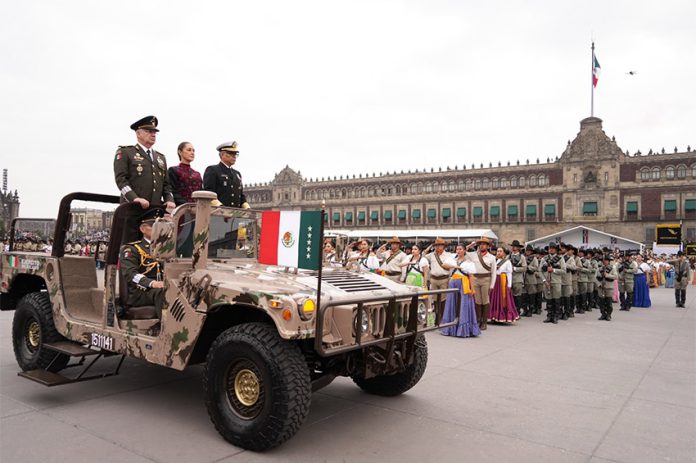President Claudia Sheinbaum “inherited a human rights crisis” from her predecessor Andrés Manuel López Obrador, according to a new report by the New York-based non-governmental organization Human Rights Watch (HRW).
In the Mexico chapter of its “World Report 2025: Events of 2024,” HRW raised a range of concerns related to issues including criminal violence, judicial independence, arbitrary detention and disappearances.
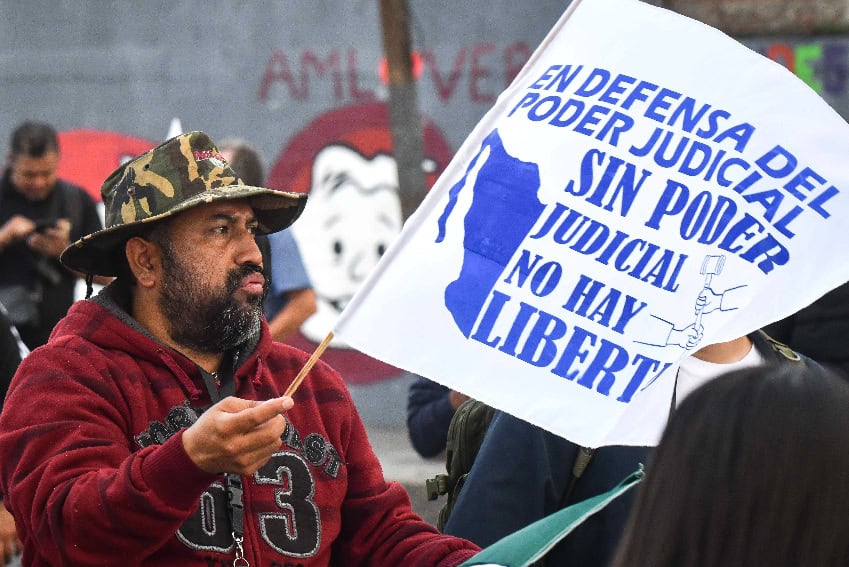
Gerardo Laveaga, a lawyer, writer, academic and former government official, described the report as “not very encouraging.”
Its publication on Thursday came a week after Sheinbaum celebrated 100 days in office as Mexico’s first female president and just four days before Donald Trump will be sworn in as the 47th president of the United States.
The Sheinbaum administration is currently aiming to reduce crime in Mexico with a new security strategy, albeit one that continues to use the military for public security tasks.
In its report, HRW noted that Mexican “soldiers have been implicated in a wide range of serious abuses against civilians, including torture, arbitrary detention, extrajudicial killings, and enforced disappearances.”
Mexico’s ‘human rights crisis’
“President Claudia Sheinbaum Pardo, who took office in October, inherited a human rights crisis rooted in extreme violence by organized crime groups and widespread abuse by state agents with near total impunity,” HRW said at the very start of the Mexican chapter of its latest World Report.
“Her predecessor, Andrés Manuel López Obrador (2018-2024) made little progress addressing these challenges,” the NGO added.
HRW noted that last September the Mexican Congress approved constitutional reforms that were put forward by López Obrador, including “an expansion of the military’s role in policing,” as the National Guard was put under army control, and “a sweeping overhaul of the justice system” that includes the staging of judicial elections for the first time ever in Mexico.
Those reforms, HRW said, “could perpetuate abuses and severely undermine the rule of law.”
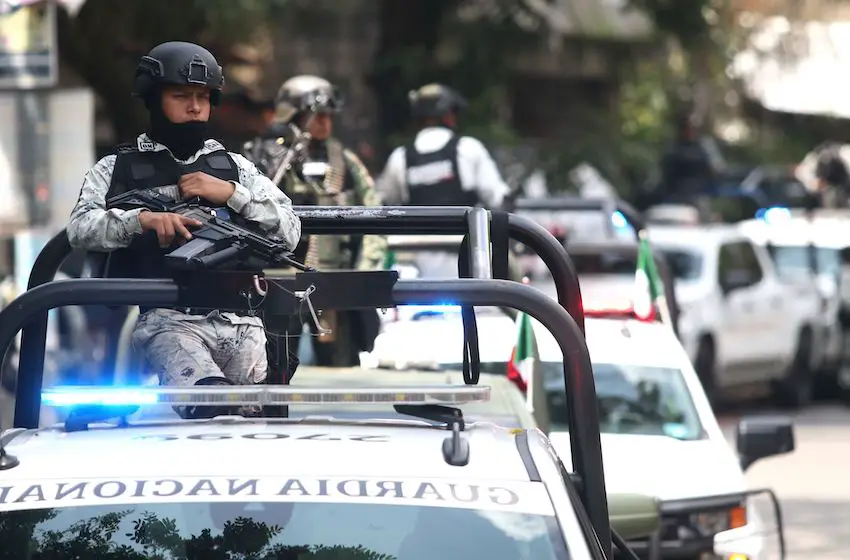
The NGO also said that “migrants and asylum seekers are routinely targeted by criminal groups and Mexican officials for serious abuses, including sexual assault, armed robbery, kidnapping, and extortion.”
In addition, it said that “Mexico is one of the most dangerous countries in the world for journalists and human rights defenders,” dozens of whom have been murdered in recent years.
Violence and the criminal justice system
HRW highlighted that “there are extremely high rates of violent crime, including homicide, in many parts of Mexico.”
It also noted that “security analysts estimate that around two-thirds of homicides” in Mexico “are committed by organized crime.”
Mexico recorded just over 30,000 homicides last year, according to preliminary government data, meaning that some 20,000 were likely committed by criminal organizations such as the Sinaloa Cartel and the Jalisco New Generation Cartel.
As noted by HRW, the majority of homicides in Mexico are committed with firearms, and most of the guns used in high-impact crimes such as murder are smuggled into the country from the United States.
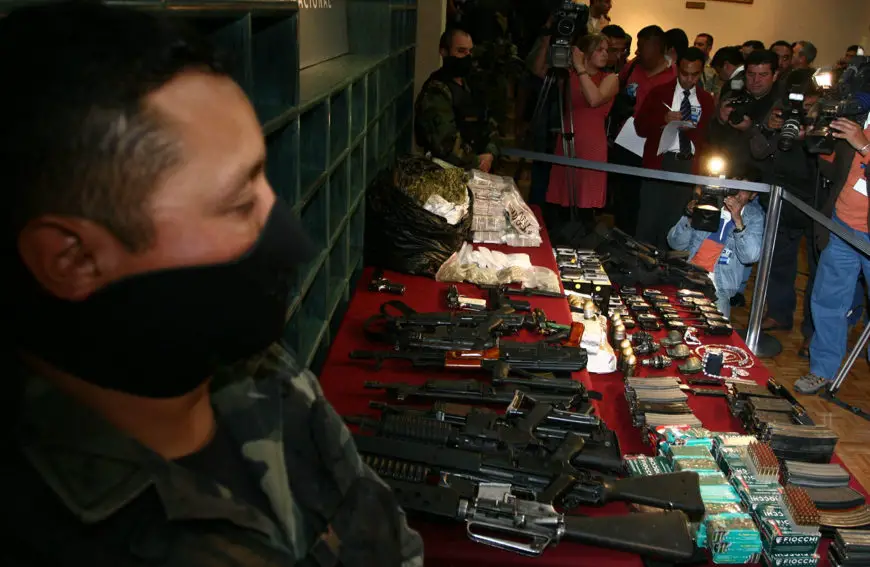
While Trump wants Mexico to do more to stem the flow of drugs and migrants to the United States, Sheinbaum would like to see the U.S. crack down on the smuggling of guns across its southern border.
Combating Mexico’s security problems is a herculean task but Sheinbaum is confident that her strategy — based on four core tenets including attention to the root causes of crime and the strengthening of intelligence and investigation practices — will, in time, yield positive results. The president is open to security cooperation with the United States, but has made it clear that Mexico would not accept any interventionist actions, such as the use of the U.S. military on Mexican soil.
To effectively combat crime, a strong criminal justice system is essential, but HRW said in its report that the system in Mexico is “extremely ineffective.”
“Prosecutors fail to effectively investigate or prosecute or otherwise ensure accountability for the vast majority of crimes and human rights abuses, including abuses by state security forces and serious offenses like homicide and enforced disappearances,” it said.
Judicial independence and arbitrary detention
HRW noted that judicial elections will be held in Mexico in 2025 and again in 2027. Supreme Court justices are among those who will be elected by citizens.
“A new Judicial Disciplinary Tribunal will also be created with broad powers to sanction or remove judges,” HRW highlighted.
“The UN special rapporteur for the independence of judges and lawyers and the Inter-American Commission on Human Rights warned that the measure is likely to weaken judicial independence and undermine the right to a fair trial,” the NGO added.
Sheinbaum argues that the judicial reform approved by Congress last year is necessary to rid Mexico’s judiciary of corruption and other ills. She denies claims that the judiciary will lose independence as a result of the popular election of judges.
“We’re going to provide an example to the world with the reform to the judicial power, I’m certain,” Sheinbaum said in October.
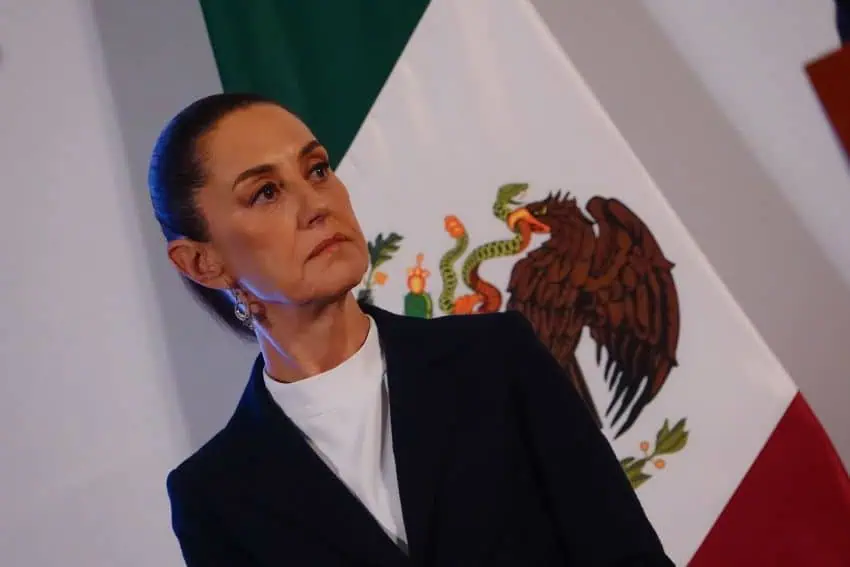
With regard to arbitrary detention, HRW highlighted that the United Nations Working Group on Arbitrary Detention presented the findings from its 2023 visit to Mexico last September, and expressed concern that “arbitrary detention remains a widespread practice in Mexico and is too often the catalyst for ill-treatment, torture, enforced disappearance and arbitrary executions.”
It also noted that the Mexican Congress in November “approved a constitutional amendment to expand the list of crimes requiring mandatory pre-trial detention, in violation of rulings by the Inter-American Court of Human Rights, which had ordered Mexico to eliminate the practice.”
Torture, disappearances and abuses by the military
HRW wrote that Mexican authorities “often use torture to obtain confessions and extract information” from suspects, noting that more than 6,000 criminal complaints of torture or cruel, inhuman or degrading treatment were filed in 2022.
“Only 82 cases that year led to criminal charges and only 10 resulted in a guilty or not-guilty verdict,” HRW said.
The NGO also highlighted that more than 115,000 people were considered as missing last September, with most of that number going missing since 2006.
It said that the government “has been slow to implement many measures required by the 2017 Disappearances Law, such as the creation of the national forensic database,” and that “former president López Obrador repeatedly, falsely claimed the official number of missing people had been exaggerated to harm him politically.”
With regard to abuses committed by the military, HRW said that accusations of wrongdoing “are rarely effectively investigated by civilian authorities.”
“… From 2007 through July 2024, the Army reported killing 5,696 people, whom it claimed were members of criminal groups. These killings are usually not independently investigated by civilian authorities,” the NGO said.
Like her predecessor, Sheinbaum has asserted that abuses committed by the military during previous governments, such as that led by ex-president Felipe Calderón, are no longer tolerated.
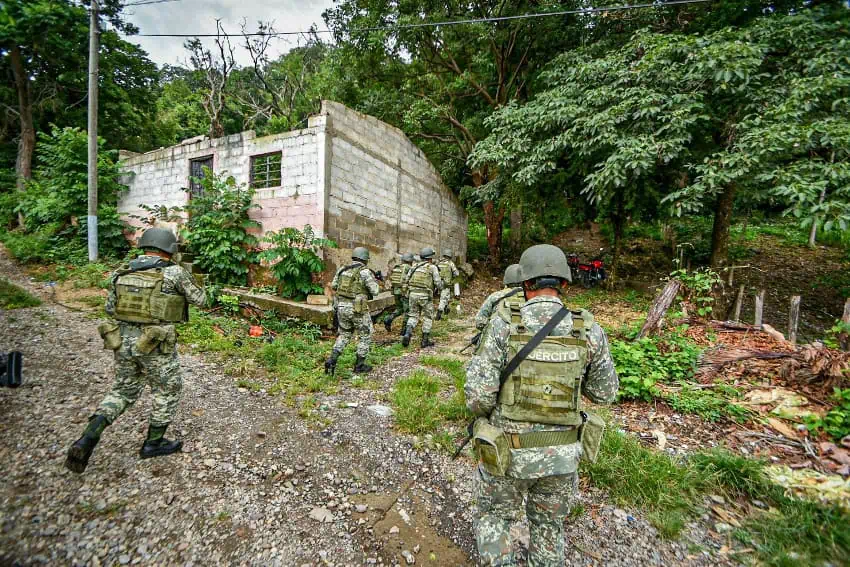
“The issue with Calderón was to kill, kill [suspected criminals] in the heat of the moment. What trial? What rule of law?” the president said this week.
“This does damage to any society, and it did a lot of damage to Mexico,” she said.
Since Sheinbaum took office, there have been a number of deadly confrontations between security forces and civilian gunmen, leading to speculation that the current government has abandoned the “not bullets” component of the so-called “hugs, not bullets” security strategy pursued by the administration of former president López Obrador.
The HRW report wasn’t all bad news for Mexico
While the Mexico chapter of the HRW report overwhelmingly depicted a bleak human rights situation in Mexico, it did highlight some positives. Among them:
- “The poverty rate fell under López Obrador’s presidency, from 41.9 percent in 2018 to 36.3 percent in 2022, according to the official poverty analysis agency.”
- “Access to abortion has expanded significantly,” although “many people still face barriers.”
- “Same-sex marriage is available in all 32 states.”
- “Mexico has made some advances in protecting the rights of people with physical and psychosocial disabilities in recent years.”
Mexico News Daily
